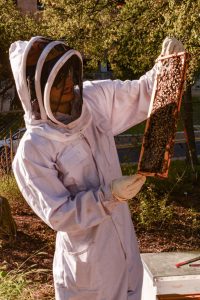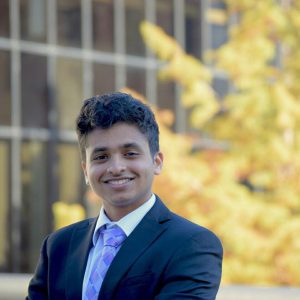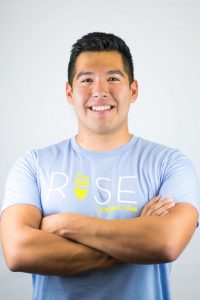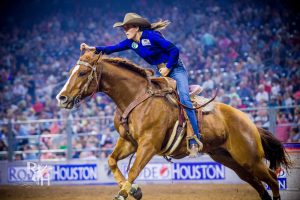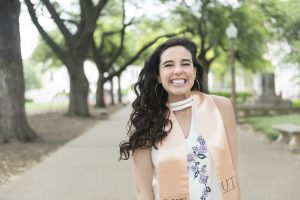 Callie Blumenfeld is this year’s Make-A-Mark campaign chairperson. “The Make-A-Mark campaign is a fundraising campaign used to promote involvement as an alumni before students even leave the university,” says Blumenfeld. “The program encourages graduating BHP seniors to donate to the program or scholarship endowment to start giving back to the university and elicit greater involvement.” Blumenfeld, who will graduate this spring with degrees from BHP and Marketing, helped the Make-A-Mark campaign fundraise over $50,000.
Callie Blumenfeld is this year’s Make-A-Mark campaign chairperson. “The Make-A-Mark campaign is a fundraising campaign used to promote involvement as an alumni before students even leave the university,” says Blumenfeld. “The program encourages graduating BHP seniors to donate to the program or scholarship endowment to start giving back to the university and elicit greater involvement.” Blumenfeld, who will graduate this spring with degrees from BHP and Marketing, helped the Make-A-Mark campaign fundraise over $50,000.
As the chairperson for the committee, Blumenfeld was able to combine her love for the program with her talent for logistics and planning. “I decided to get involved because I love BHP and it has given me so much, and I was so excited to have a chance to give back. BHP has allowed me access to some of the best and brightest students and professors in the nation, which has really opened my mind and challenged me in incredible ways,” says Blumenfeld. “I also love planning events and interacting with staff and my class members, so it was a great experience overall. The most rewarding part was actually hitting our goal and receiving an extra donation on top of that. Knowing that I was a part of bringing in so much money to the program to help make it even more amazing in the future is wonderful.”
Blumenfeld and her team used innovative strategies to help meet and exceed their fundraising goal. “This year, the Make-A-Mark campaign was able to raise over $50,000 for the scholarship and program endowments for BHP. With over $20,000 in student donations, the campaign was a success! We played around this year with making the campaign a month long instead of the traditional two weeks, and while it was a stressful month of work, I am so happy that we were able to meet our goal and give back so much to this program,” says Blumenfeld. “The campaign will directly impact current BHP students through the program endowment, which provides funds for a variety of different events that BHP hosts throughout the year that students attend for free. In addition, the program will benefit future BHP students through the scholarship endowment, which provides scholarship money to incredible students!”
After graduation, Blumenfeld will be in Houston, Texas working as a business analyst for McKinsey & Company, a global strategy and management consulting firm. Her advice to current and incoming students is to live in the moment. “Be conscious of the fact that college is only four years. It may seem like a lifetime at the start, and in some very stressful moments you may want it to be over with. Once you get to the finish line, though, you’ll wish that you went to that professor dinner to really interact and take advantage of the moment, that you stayed longer at group project meetings to really get to meet your classmates, or that you attended every football game. Sometimes, school feels overwhelming and it feels like a bad grade can make or break you, but in the grand scheme of things, what you’ll remember from college will be the late nights and long talks with friends. Take it from one sappy senior: college goes by in the blink of an eye. Enjoy it.”

